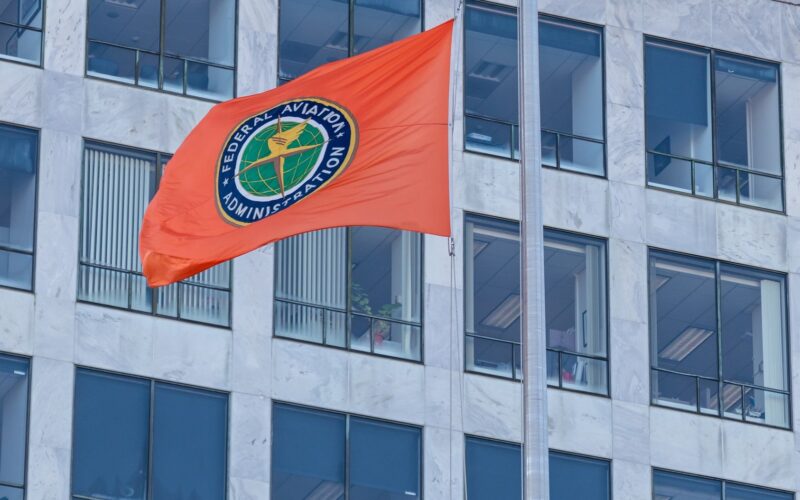The United States (US) Federal Aviation Administration (FAA) has asked airlines operating out of John F. Kennedy International Airport (JFK), LaGuardia Airport (LGA), Newark Liberty International Airport (EWR), and Ronald Reagan Washington National Airport (DCA) to reduce operations during the upcoming summer season, citing staffing issues at Air Traffic Control (ATC) facilities.
According to the FAA’s notice published on March 22, 2023, it is issuing a conditional waiver of minimal usage requirement for slots at JFK, LGA, and DCA due to “post-pandemic effects on Air Traffic Controller (ATC) staffing at the New York Terminal Radar Approach Control (TRACON) facility (N90)”.
Airlines will be able to “voluntarily turn in up to 10% of their slots held at JFK and LGA as well as impacted slots at DCA for the period from May 15, 2023, through September 15, 2023”, the FAA added. Furthermore, carriers operating out of EWR will be able to do the same with their approved operating timings for the same period.
If airlines want to keep slots at JFK and LGA they must be used 80% of the time. If they are not used, they are withdrawn and returned to the pool. Meanwhile, if slots are not used for 80% of the time over two months at DCA, they are also to be returned to the pool. In both cases, “the FAA may waive this minimum usage requirement in the event of a highly unusual and unpredictable condition that is beyond the control of the slot-holding carrier.” For JFK and LGA that waiver period is five days, while for DCA, it is nine days or more.
If companies want to take advantage of the temporary waiver announced by the authority, they must inform the FAA prior to April 30, 2023.
“This relief is being provided to give carriers the ability to reduce operations during the peak summer travel period, which are likely to be exacerbated by the effects of Air Traffic Controller (ATC) staffing shortfalls,” the FAA noted.
Growth impacting operational reliability
With the air travel industry scheduling more flights and anticipating an ever-growing demand from passengers, the FAA is worried facilities that are already experiencing staff shortages will be further overwhelmed during the upcoming travel period.
“The airspace complexity resulting from the close proximity of the major commercial airports serving the New York City region is a significant contributing factor to delays at JFK, LGA, and EWR,” read the agency’s assessment. As the FAA pointed out, this will only worsen the situation since across the US, ATC staffing averages 81%, while in the N90 facility, staffing is at 54% of its target. While safety measures during COVID-19 negatively impacted Certified Professional Controller (CPC) training, most of the backlog related to training was reduced except for the N90. Furthermore, between May 2022 and September 2022, “the total number of instances of delay to operations from JFK, LGA, and EWR totaled 41,498, with effects throughout the NAS and for which staffing was a contributing factor”.
Since staffing has not improved, and Air Traffic Organization (ATO) analysis shows that operations at New York’s major airports is set to increase by 7% between May and September 2023 compared to the corresponding period, the “FAA projects will result in overall delays increasing by 45%”.
And while the agency is looking to move EWR’s radar sector from N90 to Philadelphia TRACON (PHL), since the training is scheduled to begin in September 2023, the FAA said, “this solution will not resolve the anticipated operational impacts in the summer 2023 scheduling season”. The staff shortages could be exacerbated by adverse weather and travel spikes during holidays without proper flexibility to alleviate congestion and delays at JFK, LGA, and EWR.
“A waiver of minimum slot usage requirements at JFK and LGA, and a similar policy of prioritizing returned operations at EWR, is necessary to allow carriers to reduce operations to enable scheduling and operational stability during significant NAS impact days through the summer 2023 season,” the FAA argued. Since flights between The Big Apple and DCA is also a high-frequency market for US airlines, the agency said it “recognizes this market is a likely target for carriers to consolidate flights while retaining their network connectivity”.
As such, the FAA encourages airlines to utilize their DCA slots to fly elsewhere in the country if they choose to reduce their NY-DCA flights for the upcoming summer period. Carriers can also “up-gauge aircraft serving the affected airports to the extent possible to maintain passenger throughput and minimally impact consumers,” the FAA added.
“Finally, carriers should be aware that the N90 staffing shortfalls will not form a sufficient basis for relief going forward because carriers will have had sufficient opportunity to plan and take remedial action under this waiver policy,” said the FAA, stating that it would not provide additional post-hoc relief that is related to ATC staff shortages. “Given this relief, operational impacts associated with N90 staffing during the summer 2023 scheduling season will not have been beyond the carriers control and will not serve as a valid basis for a waiver,” the FAA concluded.
If airlines want to use the waiver, they must also meet four conditions. These are that they must apply for it before April 30, 2023, the slots need to be for scheduled operations, the slots had to be approved for use before October 28, 2023, and, lastly, slots “authorized at DCA by Department of Transportation or FAA exemptions are not eligible for relief”.
Throughout summer 2022, many airports across the Western Hemisphere experienced staffing-related delays that extended to other areas, including ground staff. Some airports, like Amsterdam Schiphol Airport (AMS) had to resort to reducing their annual flight movements, which was also enacted by the Dutch government in a bid to reduce the country’s emissions.

